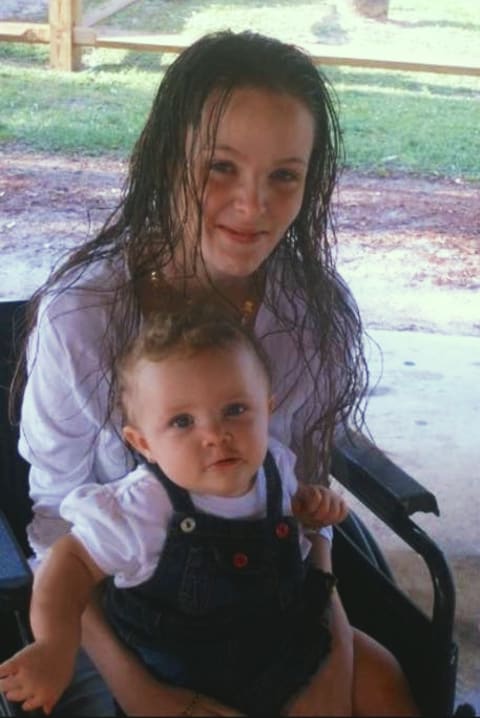Advertisement
Ten years have passed since I first met Liz. She was 19, just on the cusp of adulthood. I remember myself at her age — partying in college as if I would never really grow up. But Liz’s life was nothing like mine. She'd had amyotrophic lateral sclerosis (ALS) since she was 16.
ALS, also known as Lou Gehrig’s disease, doesn’t have a cure or even a treatment. It's a death sentence that paralyzes its victims but leaves their cognitive functions unaffected. The usual life expectancy is two to five years. Liz was one of the youngest known cases.
A photography project brought me to her. I was working on a calendar that featured children who lost or were losing someone to ALS — the proceeds from which would be put toward finding a cure.
I recall Christmas with Liz’s family that year. They had all gathered with the understanding that this would be their last Christmas with Liz. I remember her extended family members arriving from out of town, pretending that nothing was wrong so as not to quash the holiday spirit.
In my toast that year, I said that I hoped we would all be together again the following Christmas, too. And my wish came true. I proposed that same toast again the following year. So began a lasting friendship that has continued to today.
The medical community saw Liz as a person who was dying, and I walked into my project hoping I could help her. I didn’t expect that Liz would actually be the one who taught me how to live.
Here are five of the most important lessons she has taught me:
1. Maintain gratitude in spite of challenges.
The few times I've seen Liz complain over the years, she's always concluded by saying something to the effect of, “but I’m still grateful.” Despite being almost entirely immobile, Liz is thankful for every day because she's painfully aware that tomorrow is not guaranteed. There are very few things that Liz can do unassisted, but each small task is a victory that she celebrates as a blessing.
2. Memento mori.
We often forget, especially when we are young, that we are mortal. While Liz has to live daily with the knowledge that tomorrow may never come, the truth is that tomorrow is not guaranteed for any of us. The time to do the things we want to do, say the things we want to say, and achieve our goals is now. Every moment we lose to doubt or insecurity is a moment we will never get back.
3. It is as our mind wills it.
The world views Liz as someone who is dying of ALS, but she sees herself as someone who is living with ALS. The disease, while certainly limiting, has not stopped her from living her life. She still gets manicures, goes out with her friends, and she still brought a beautiful child into this world in spite of it all.

4. Sometimes, the battle chooses us.
Liz did nothing to contract ALS — it just happened. Life beats us all up and breaks our hearts. But Liz pushes back daily against ALS by refusing to give up. While her mobility is constantly decreasing, she does those things she can do with exuberance and pride. Too often, we give up without a struggle and accept what comes our way. But whatever life throws at us, we have to stand up and fight back. Since I met Liz, my mantra has become "make sure you are the one who throws the last punch before the fight is over."
5. There is joy in each and every day.
I'm in awe of Liz’s ability to relish simple acts that are often taken for granted — a shopping trip or a day at the pool with her daughter, an afternoon spent with friends or listening to her favorite song. We spend so much time focusing on what we want but don’t have — that which we feel we deserve but has somehow been denied us. Ultimately, life is what we make it and it's up to us to seek out the joy in it.
This year, Liz defied the odds and did something everyone was certain she would never do back when she was diagnosed with ALS — she celebrated her 29th birthday. I hope and pray she has more life lessons for me still.
Image courtesy of the author.
Preview Photo Credit: Stocksy
